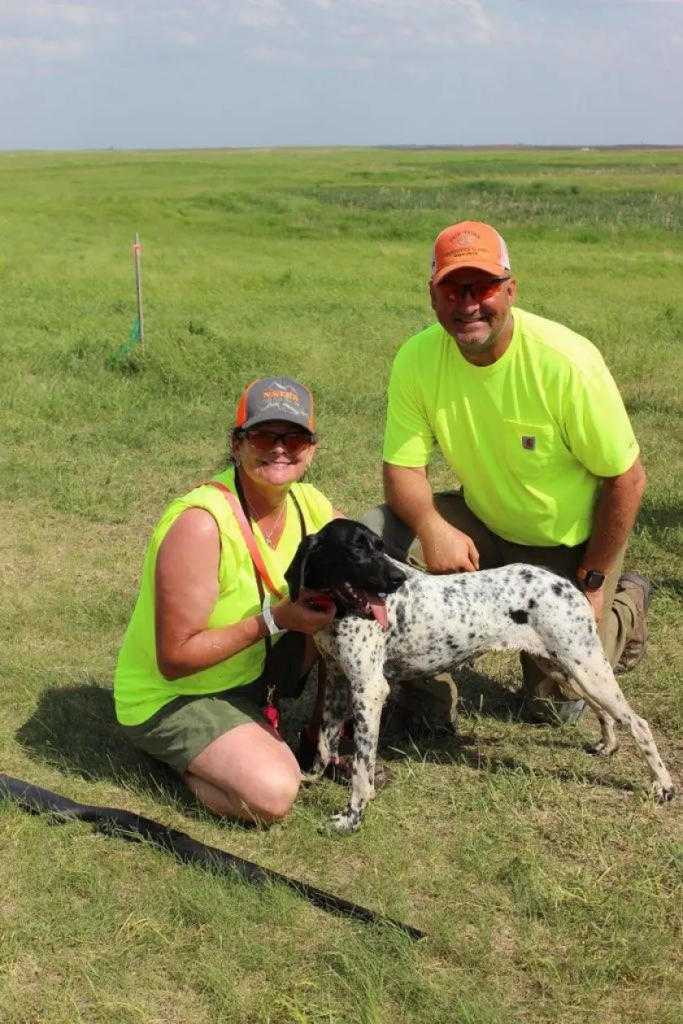Dogs’ brains are sensitive to the familiar high-pitched “cute” voice tone that adult humans, especially women, use to talk to babies, according to a new study.
The research, published recently in the journal Communications Biology, found “exciting similarities” between infant and dog brains during the processing of speech with such a high-pitched tone feature.
Humans tend to speak with a specific speech style characterised by exaggerated prosody, or patterns of stress and intonation in a language, when communicating with individuals having limited language competence.
Such speech has previously been found to be very important for the healthy cognitive, social and language development of children, who are also tuned to such a high-pitched voice.
But researchers, including those from the Eötvös Loránd University in Hungary, hoped to assess whether dog brains are also sensitive to this way of communication.
In the study, conscious family dogs were made to listen to dog, infant and adult-directed speech recorded from 12 women and men in real-life interactions.
As the dogs listened, their brain activities were measured using a functional magnetic resonance imaging (fMRI) scan.
The study found the sound-processing regions of the dogs’ brains responded more to dog- and infant-directed than adult-directed speech.
This marked the first neurological evidence that dog brains are tuned to speech directed specifically at them.
“Studying how dog brains process dog-directed speech is exciting, because it can help us understand how exaggerated prosody contributes to efficient speech processing in a nonhuman species skilled at relying on different speech cues,” explained Anna Gergely, co-first author of the study.
Scientists also found dog- and infant-directed speech sensitivity of dog brains was more pronounced when the speakers were women, and was affected by voice pitch and its variation.
These findings suggest the way we speak to dogs matters, and that their brain is specifically sensitive to the higher-pitched voice tone typical to the female voice.
“Remarkably, the voice tone patterns characterizing women’s dog-directed speech are not typically used in dog-dog communication – our results may thus serve evidence for a neural preference that dogs developed during their domestication,” said Anna Gábor, co-first author of the study.
“Dog brains’ increased sensitivity to dog-directed speech spoken by women specifically may be due to the fact that women more often speak to dogs with exaggerated prosody than men,” Dr Gabor said.

Best dog of the year, paws-down

STARK COUNTY — Years of training have come to fruition for a Stark County couple whose dog was named National Shoot to Retrieve Association’s 2023 Dog of the Year on Oct. 28. Dean and Kristy Goodall’s dog, Cowpie, a 5-year-oldGerman Shorthair, took home the honor despite a recent infection that left everyone wondering if she would even survive.
The NSTRA competition, which was held in Amo, Ind., included 192 dogs, Dean Goodall said. He is Cowpie’s handler during competitions.
“You’re facing the best dogs across the entire country and to come out the last dog standing, it’s just an incredible feeling,” Dean Goodall said. “We’ve been so close so many times. But to finally win one, it’s just a dream come true.”
During the trials, two dogs compete against each other at a time. They are put in blinds with their handlers while five birds are planted on 40 acres of land. The dogs then have 30 minutes to find the birds, he said.

“We walk the field, there’s two of us, side-by-side, and your dog has to actually hunt for it,” Kristy Goodall said. “Then, when they smell a bird, they have to stop and point. Once they establish point, they can’t take another step until the bird’s in the air.”
The handler kicks around, until the bird flies into the air and then they shoot the bird. Once the handler shoots, they are not supposed to move, she said.
“Then the dog has to go find the bird, pick it up, bring it in and put it in your hand,” Kristy Goodall said.
Judges score the dog on several criteria, including obedience and retrieval, she said.
During the trials, Dean Goodall could tell Cowpie didn’t have the lung capacity she once had, due to an infection she endured after she competed last year. He wasn’t sure she would be able to finish, let alone win.
“When you’re out hunting, your dogs always have their noses in the grass running full speed through the grass,” Kristy Goodall said. “It’s kind of known to happen where they suck those grass seeds down into their lung tissue. Instead of going down through their esophagus, it actually lands inside the lung, and it creates a huge infection.”
The only solution for Cowpie was surgery, which required a veterinarian to open her rib cage to operate on the infected lung tissue. The surgery couldn’t guarantee she would survive. After the procedure was complete, Cowpie was then isolated and confined for two months while she healed.
“She slowly recovered and then she got pregnant and had puppies last summer,” Dean Goodall said.

The couple started getting Cowpie back into shape when her puppies were old enough to be sold.
“A year ago at this time, I didn’t think she’d be alive,” Dean Goodall said. “Now a year later, here she is winning the trial that almost killed her.”
The Goodalls, who live on a farm near Dickinson, have nine dogs. They train eight of those dogs for hunting and competition.
“You know, you start hunting in September and you’re done in December, and what do you do with your dog the rest of the year?” Dean Goodall said. “National Shoot to Retrieve Association simulates hunting conditions in a trial setting, but it’s a very competitive trial situation.”
They have been competing in the NSTRA trials for more than a decade. Although he quit for a few years, Kristy encouraged him to get back into competing in dog trials.
“I have that competitive drive and I wasn’t going to do this unless I could do it at the very top level,” Dean Goodall said. “So we got after it and we took it serious and we started pushing ourselves and trialing all over and getting better dogs and training better. And pretty soon we were placing in almost every national trial.”
He said Kristy’s success in training horses helped drive them to continue doing better with their dogs.

“Kristy’s hit the top of the world in the horse world — she’s won five world titles in horses,” Dean Goodall said. “Cowpie has finished fourth in the performance national trial before. She’s won two regional championships and now she’s the first dog we’ve owned that’s won a national.”
They run their dogs regularly to help keep them in shape, they said. All their dogs are well trained from basic commands to hunting commands.
“In the fall I’ve been wild bird hunting after work every day that I can get out in the field,” Dean Goodall said. “We end up training our dogs against each other, but they get tired of competing against each other. They know it’s practice. There’s a big difference between the intensity of an actual trial and going out and practicing.”
When they do well during trials, the Goodalls often reward their dogs with a steak or other treat. However, they say the trials are a reward in themselves, since the dogs love to do it.



Leave a Reply